
0
+
Google Reviews

0
+
4.4 ( 2178 Ratings )
A blockchain is a digitized, decentralized, public ledger of all cryptocurrency transactions. Constantly growing as ‘completed’ blocks (the most recent transactions) are recorded and added to it in chronological order, it allows market participants to keep track of digital currency transactions without central recordkeeping. Each node (a computer connected to the network) gets a copy of the blockchain, which is downloaded automatically.


Curriculum Designed by Experts
Basic Solidity
Versioning
Compiling
Contract Declaration
Types & Declaring Variables
uint256, int256, bool, string, address, bytes32
Default Initializations
Comments
Functions
Deploying a Contract
Calling a public state-changing Function
Visibility
Scope
View & Pure Functions
Structs
Intro to Storage
Arrays – Dynamic & Fixed sized
Compiler Errors and Warnings
Memory
Mappings
SPDX License
Deploying to a “Live” network
A testnet or mainnet
Find a faucet here
Connecting Metamask
Interacting with Deployed Contracts
The EVM
Inheritance, Factory Pattern, and Interacting with External Contracts
Payable, msg.sender, msg.value, Units of Measure
Payable
Wei/Gwei/Eth Converter
msg.sender & msg.value
Chainlink Oracles
Decentralized Oracle Network Chainlink
Blockchains can’t make API calls
Centralized Nodes are Points of Failure
data.chain.link
Getting External Data with Chainlink Oracles
Chainlink
Faucets and Contract Addresses
Kovan
Getting Price Information
Importing from NPM and Advanced Solidity
Decimals/Floating Point Numbers in Solidity
latestRoundData
Importing from NPM in Remix
Interfaces
Introduction to ABIs
Getting Price Feed Addresses
getPrice
Tuples
Unused Tuple Variables
Matching Units (WEI/GWEI/ETH)
getConversionRate
Matching Units (Continued)
SafeMath & Integer Overflow
using keyword
Libraries
SafeMath PSA
Setting a Threshold
Require
Revert
Withdraw Function
Transfer
Balance
this
Contract Owners
Constructor
==
Modifiers
Resetting
for loop
Array Length
Forcing a Transaction
Recap
Installing VSCode, Python, and Web3
VSCode
VSCode Crash Course
Extensions
Short Cuts:
VSCode Shortcuts
VSCode MacOS Shortcuts
Python
Install Troubleshooting
Terminal
Making a directory/Folder
Opening the folder up with VSCode
Creating a new file
Syntax Highlights
Remember to save!
Setting linting compile version
VSCode Solidity Settings
Formatting & Format on Save
Solidity Prettier
Python Black
pip
Python Script with Web3.py – Deploying a Contract
Reading our solidity file
Running a Python Script in the Terminal
MaxOS Shortcuts
Windows Shortcuts
Linux Shortcuts
Compiling in Python
py-solc-x
compile_standard
Colorized Brackets
JSON ABI
Saving Compiled Code
Formatting JSON
Deploying in Python
Get Bytecode
Get ABI
Choose Blockchain to Deploy To
Local Ganache Chain
Ganache UI
Ganache Command Line
Web3.py
HTTP / RPC Provider
Private Keys MUST start with “0x”
Contract Object
Building a Transaction
Account Nonce
Calling “Contructor”
Transaction Parameters
Signing the Transaction
NEVER put your private key directly in your code
Setting Environment Variables (Windows, Linux, MacOS)
More on Windows Environment Variables
Exported Environment Variables Only Last the Duration of the Shell/Terminal
Private Key PSA
.env file
.gitignore
Loading .env File in Python
python-dotenv
Viewing our Transaction / Deployment in Ganache
Waiting for Block Confirmations
Interacting with Our Contract in Python & Web3.py
2 Things you always need
Contract Address
Contract ABI
Getting address from transaction receipt
Calling a view function with web3.py
Call vs Transact
Updating State with Web3.py
ganache-cli
Installing Ganache
Install Nodejs
Install Yarn
Working with ganache-cli
Open a new terminal in the same window
Deploying to a testnet
Infura
Alchemy
Using Infura RPC URL / HTTP Provider
Chain Ids
Brownie Introduction
Installing Brownie
Installing Brownie
Install pipx
pipx install eth-brownie
Testing Successful Install
Brownie Simple Storage Project
A new Brownie project with brownie init
Project Basic Explanation
Adding SimpleStorage.sol to the contracts folder
Compiling with brownie compile
Brownie deploy script
def main is brownie’s entry point
brownie defaults to a development ganache chain that it creates
Placing functions outside of the main function
brownie accounts
3 Ways to Add Accounts
accounts[0]: Brownie’s “default” ganache accounts
Only works for local ganache
accounts.load(“…”): Brownie’s encrypted command line (MOST SECURE)
Run brownie accounts new <name> and enter your private key and a password
accounts.add(config[“wallets”][“from_key”]): Storing Private Keys as an environment variable, and pulling from our brownie-config.yaml
You’ll need to add dotenv: .env to your brownie-config.yaml and have a .env file
Importing a Contract
Contract.Deploy
View Function Call in Brownie
State-Changing Function Call in Brownie / Contract Interaction
transaction.wait(1)
Testing Basics
test_simple_storage.py
Arrange, Act, Assert
assert
brownie test
test_updating_storage
Pytest / Brownie Test Tips
Deploy to a Testnet
brownie networks list
Development vs Ethereum
Development is temporary
Ethereum networks persist
RPC URL / HTTP Provider in Brownie
The network flag
list index out of range
get_account()
networks.show_active()
build/deployments
Accessing previous deployments
Interacting with contracts deployed in our brownie project
Introduction
Setup
Dependencies, Deploying, and Networks
Dependencies
chainlink-brownie-contracts
remappings
Deploy Script (V1)
helpful_scripts.py
__init__.py
Deploy to Rinkeby
Contract Verification (publish_source)
The Manual Way
“Flattening”
The Programatic Way
Getting an Etherscan API Key
ETHERSCAN_TOKEN
Interacting with Etherscan
Deploying to Local Chains
Introduction to Mocking
Constructor Parameters
networks in our brownie-config.yaml
Copying Mock Contracts from chainlink-mix
Deploying and using our mock
Refactoring
Deploying to a persistent ganache
brownie attach
Adding a persistent brownie network
resetting a network build
Funding and Withdrawing Python Scripts
Fund Script
Withdraw Script
Testing across networks
test_can_fund_and_withdraw
default networks
pytest pip install pytest
pytest.skip
brownie exceptions
mainnet-fork
Custom mainnet fork
Adding a development brownie network
brownie networks add development mainnet-fork-dev cmd=ganache-cli host=http://127.0.0.1 fork=’https://infura.io/v3/$WEB3_INFURA_PROJECT_ID’ accounts=10 mnemonic=brownie port=8545
Alchemy
brownie test –network mainnet-fork
brownie ganache vs local ganache vs mainnet-fork vs testnet…
Git
Installing Git
Creating a repository
First time with git
Adding our project to github
Introduction
Lottery.sol
Testing Lottery.sol
Defi Intro
Aave UI
Programmatic Interactions with Aave
Non-Technical Explainer
Simple NFT
Advanced deploy_and_create
Creating Metadata & IPFS
Introduction to upgrading smart contracts
Sectors are changing due to blockchain technology, and success depends on having in-demand talents. Enroll in our Blockchain Technical Course Training to gain hands-on experience with smart contracts, consensus algorithms, cryptography, and decentralized applications. Unlock your future with certification today!
A Blockchain Technical Course Training unlocks numerous career opportunities such as Blockchain Developer, Architect, Consultant, and Project Manager. With demand surging across industries like finance, healthcare, and supply chain, certification boosts your career prospects. Enroll now to lead in this transformative technology!
Cloud adoption in blockchain is transforming the tech landscape. Our Blockchain Technical Course Training covers cloud integration, smart contracts, and decentralized apps. Certification boosts your expertise in cloud-based blockchain solutions. Enroll today to stay ahead in this evolving field!
Blockchain Technical Course Training offers scalability and flexibility for developing decentralized solutions. Learn to create systems that efficiently scale with growing demands while maintaining adaptability. Blockchain certification provides the skills to manage diverse projects, enhancing your career in this cutting-edge field.
Blockchain Technical Course Training equips you with essential cost management skills for blockchain projects. Learn to optimize resources, reduce expenses, and enhance efficiency. With blockchain certification, you’ll gain practical expertise to manage costs effectively, advancing your career in this evolving industry.
Blockchain Technical Course Training ensures mastery in security and compliance. Learn to implement secure, compliant blockchain systems, safeguarding data and meeting regulatory standards. Enroll in blockchain certification training to enhance your skills, protect projects, and advance your career in a secure industry.
Radical Technologies is the leading IT certification institute in Pune, offering a wide range of globally recognized certifications across various domains. With expert trainers and comprehensive course materials, it ensures that students gain in-depth knowledge and hands-on experience to excel in their careers. The institute’s certification programs are tailored to meet industry standards, helping professionals enhance their skillsets and boost their career prospects. From cloud technologies to data science, Radical Technologies covers it all, empowering individuals to stay ahead in the ever-evolving tech landscape. Achieve your professional goals with certifications that matter.
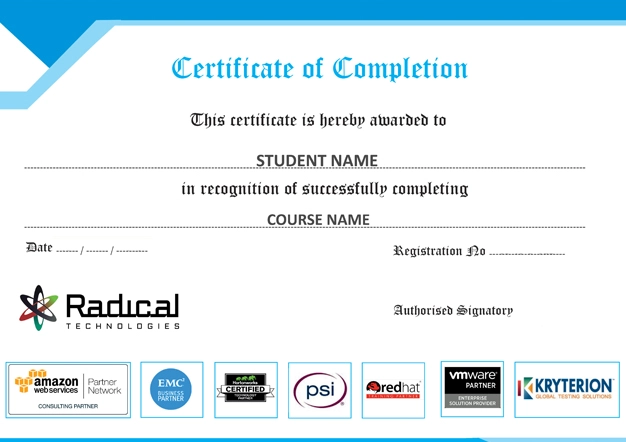


At Radical Technologies, we are committed to your success beyond the classroom. Our 100% Job Assistance program ensures that you are not only equipped with industry-relevant skills but also guided through the job placement process. With personalized resume building, interview preparation, and access to our extensive network of hiring partners, we help you take the next step confidently into your IT career. Join us and let your journey to a successful future begin with the right support.
At Radical Technologies, we ensure you’re ready to shine in any interview. Our comprehensive Interview Preparation program includes mock interviews, expert feedback, and tailored coaching sessions to build your confidence. Learn how to effectively communicate your skills, handle technical questions, and make a lasting impression on potential employers. With our guidance, you’ll walk into your interviews prepared and poised for success.
At Radical Technologies, we believe that a strong professional profile is key to standing out in the competitive IT industry. Our Profile Building services are designed to highlight your unique skills and experiences, crafting a resume and LinkedIn profile that resonate with employers. From tailored advice on showcasing your strengths to tips on optimizing your online presence, we provide the tools you need to make a lasting impression. Let us help you build a profile that opens doors to your dream career.

Infrastructure Provisioning
Implementing automated infrastructure provisioning and configuration management using Ansible. This may include setting up servers, networking devices, and other infrastructure components using playbooks and roles.

Applications Deployment
Automating the deployment and orchestration of applications across development, testing, and production environments. This could involve deploying web servers, databases. middleware, and other application components using Ansible

Continuous Integration
Integrating Ansible into CI/CD pipelines to automate software. build, test, and deployment processes. This may include automating the creation of build artifacts, running tests, and deploying applications to various environments.

Enrolling in Radical Technologies' Blockchain Developer Course in Pune was the best decision I've made for my career. The comprehensive curriculum and hands-on projects prepared me for real-world challenges in blockchain development.
Thanks to Radical Technologies, I successfully obtained my Azure Blockchain Certification. The instructors were highly knowledgeable and provided personalized guidance throughout the Full Stack Blockchain Developer Course in Pune.
I highly recommend Radical Technologies for anyone looking to kickstart their career in blockchain development. The Blockchain Developer Online Course in Pune offered flexible learning options without compromising on quality.
The Smart Contracts Developer Course at Radical Technologies was exactly what I needed to advance my skills in blockchain technology. The practical training and industry insights were invaluable.
Radical Technologies' Blockchain Training in Pune exceeded my expectations. The instructors went above and beyond to ensure that every student understood the concepts thoroughly.
The Blockchain Development Full Course provided by Radical Technologies equipped me with the knowledge and confidence to pursue lucrative opportunities in the blockchain industry.
As a beginner in blockchain technology, I found Radical Technologies' Blockchain Course for Beginners to be incredibly helpful. The step-by-step guidance and supportive environment made learning enjoyable.
I am grateful for the opportunity to enroll in Radical Technologies' Blockchain Developer Training. The instructors were passionate about the subject matter and provided valuable insights into blockchain programming.
The Cryptocurrency Course with Certificate offered by Radical Technologies opened doors to exciting career prospects. The practical assignments and industry-relevant projects set me up for success.
Radical Technologies not only provided top-notch Blockchain Training but also assisted me with placement opportunities. I am now working in a rewarding role in blockchain development, thanks to their support.
The Online Blockchain Certification program at Radical Technologies allowed me to balance my studies with other commitments. The flexible schedule and interactive online platform made learning convenient.
I enrolled in Radical Technologies' Blockchain Technology Online Course to stay updated with the latest advancements. The course content was comprehensive, covering everything from basic concepts to advanced techniques.
The Blockchain Developer Certification from Radical Technologies helped me stand out in a competitive job market. Employers recognized the credibility of the certification, giving me a competitive edge.
The Blockchain Programming Courses offered by Radical Technologies provided a solid foundation for building my career in blockchain development. The hands-on experience and practical assignments were invaluable.
Radical Technologies' Blockchain Course with Certificate gave me the confidence to pursue my passion for blockchain technology. The industry-recognized certification opened doors to new opportunities and career growth.








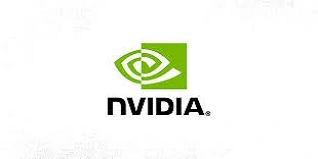
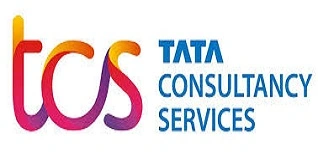




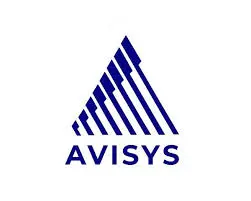
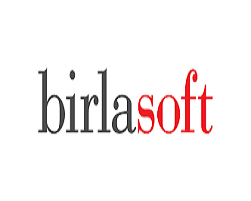
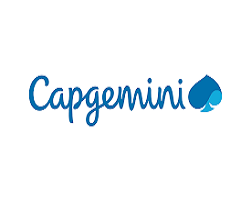
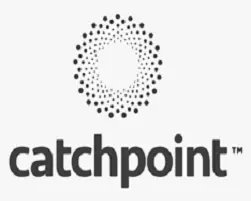


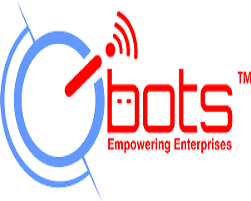




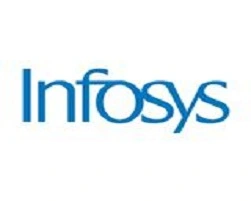
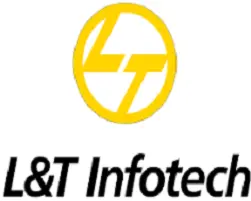
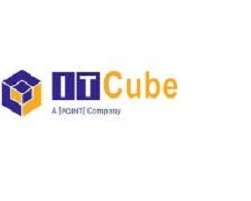

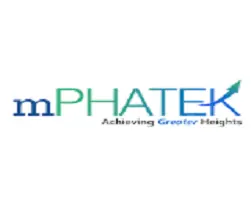
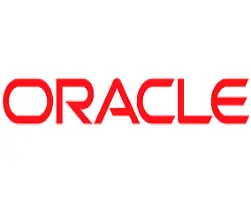


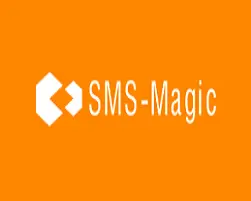


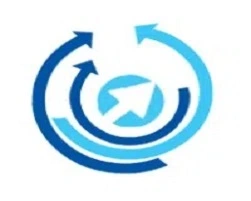
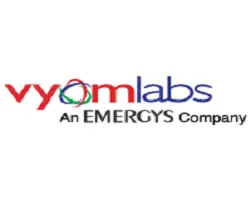
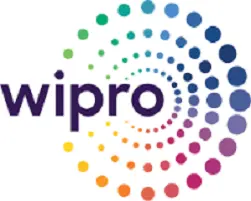
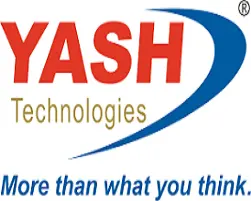
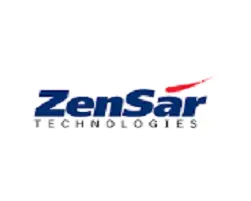
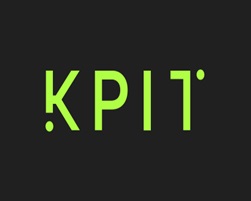

The duration of our Full Stack Blockchain Developer Course in Pune varies depending on the specific program. Typically, our courses range from 6 weeks to 3 months, providing comprehensive coverage of blockchain development concepts and practical skills.
Yes, absolutely! We understand the demands of balancing work and study. That’s why we offer flexible scheduling options, including evening and weekend classes, to accommodate working professionals who wish to enroll in our courses.
While prior programming experience is beneficial, it’s not mandatory for our Blockchain Developer Training. Our courses cater to learners of all levels, from beginners to experienced professionals, and our instructors provide comprehensive support to ensure everyone can grasp the concepts effectively.
Yes, we offer placement assistance to our students upon completion of the Blockchain Training in Pune. Our dedicated placement cell works closely with leading companies in the industry to connect our graduates with exciting job opportunities in blockchain development.
Yes, our Blockchain Online Course offers access to course materials, lectures, and interactive sessions through our online learning platform. You can conveniently study from anywhere with an internet connection, at your own pace.
Our Smart Contracts Developer Course is designed by industry experts to provide in-depth knowledge and practical skills in smart contract development. With hands-on projects and real-world applications, you’ll gain a deeper understanding of smart contract implementation and its significance in blockchain technology.
Yes, we offer various financial aid options, including scholarships and installment payment plans, to eligible students for the Blockchain Development Course. Please reach out to our admissions team for more information on available assistance programs.
Yes, upon successful completion of the Blockchain Certification Online Course in Pune, you will receive a certificate issued by Radical Technologies. This certificate validates your proficiency in blockchain technology and enhances your credibility in the job market.
There are no specific prerequisites for enrolling in the Cryptocurrency Course with Certificate. Whether you’re a beginner or an experienced professional, our course is designed to accommodate learners of all levels and provide comprehensive coverage of cryptocurrency concepts.
Enrolling in our Blockchain Programming Courses is easy! Simply visit our website or contact our admissions team to learn about upcoming course schedules and registration procedures. We’re here to assist you every step of the way.
Ambegaon Budruk | Aundh | Baner | Bavdhan Khurd | Bavdhan Budruk | Balewadi | Shivajinagar | Bibvewadi | Bhugaon | Bhukum | Dhankawadi | Dhanori | Dhayari | Erandwane | Fursungi | Ghorpadi | Hadapsar | Hingne Khurd | Karve Nagar | Kalas | Katraj | Khadki | Kharadi | Kondhwa | Koregaon Park | Kothrud | Lohagaon | Manjri | Markal | Mohammed Wadi | Mundhwa | Nanded | Parvati (Parvati Hill) | Panmala | Pashan | Pirangut | Shivane | Sus | Undri | Vishrantwadi | Vitthalwadi | Vadgaon Khurd | Vadgaon Budruk | Vadgaon Sheri | Wagholi | Wanwadi | Warje | Yerwada | Akurdi | Bhosari | Chakan | Charholi Budruk | Chikhli | Chimbali | Chinchwad | Dapodi | Dehu Road | Dighi | Dudulgaon | Hinjawadi | Kalewadi | Kasarwadi | Maan | Moshi | Phugewadi | Pimple Gurav | Pimple Nilakh | Pimple Saudagar | Pimpri | Ravet | Rahatani | Sangvi | Talawade | Tathawade | Thergaon | Wakad
I had an amazing experience with this service. The team was incredibly supportive and attentive to my needs. The quality of the work exceeded my expectations. I would highly recommend this to anyone looking for reliable and professional service."
I had an amazing experience with this service. The team was incredibly supportive and attentive to my needs. The quality of the work exceeded my expectations. I would highly recommend this to anyone looking for reliable and professional service."
I had an amazing experience with this service. The team was incredibly supportive and attentive to my needs. The quality of the work exceeded my expectations. I would highly recommend this to anyone looking for reliable and professional service."
I had an amazing experience with this service. The team was incredibly supportive and attentive to my needs. The quality of the work exceeded my expectations. I would highly recommend this to anyone looking for reliable and professional service."
I had an amazing experience with this service. The team was incredibly supportive and attentive to my needs. The quality of the work exceeded my expectations. I would highly recommend this to anyone looking for reliable and professional service."
Blockchain technology is transforming industries by offering secure, transparent, and decentralized solutions. A Blockchain Certification equips professionals with in-depth knowledge of blockchain architecture, cryptographic principles, and its wide range of applications across industries such as finance, supply chain, healthcare, and more. This certification is a gateway for anyone looking to tap into the revolutionary potential of blockchain and contribute to future-ready projects.
The demand for blockchain expertise is on the rise as organizations seek innovative ways to enhance security, streamline operations, and build trust with decentralized systems. A Blockchain Certification provides:
Upon completing the Blockchain Certification, participants will:
Blockchain is quickly becoming one of the most in-demand skills across various industries. After certification, participants can pursue roles like:
Blockchain technology, known for its decentralized, transparent, and secure nature, has a wide array of applications that extend beyond cryptocurrencies. Its potential to transform various sectors is driving innovation across industries. Here’s a detailed overview of how blockchain is reshaping key fields:
1. Financial Services and Banking
Blockchain’s most well-known application is in financial services, where it revolutionizes how transactions are conducted, recorded, and verified.
Cryptocurrencies: Bitcoin, Ethereum, and other digital currencies operate on blockchain, allowing peer-to-peer transactions without intermediaries. Blockchain ensures secure and transparent cryptocurrency exchanges.
Cross-Border Payments: Traditional international payments are slow and costly, but blockchain enables near-instantaneous, low-cost cross-border transfers by eliminating the need for intermediaries such as banks.
Smart Contracts: Blockchain-based smart contracts automatically execute agreements when predefined conditions are met, minimizing the need for third parties and reducing the risk of fraud.
Decentralized Finance (DeFi): DeFi platforms provide decentralized financial services like lending, borrowing, and trading without traditional banks, enabling more inclusive and accessible financial systems.
2. Supply Chain Management
Blockchain brings transparency, traceability, and efficiency to supply chains, solving key challenges such as fraud, counterfeiting, and inefficient tracking.
Product Provenance: Blockchain enables real-time tracking of products from their source to the end consumer. This ensures authenticity and prevents counterfeit goods from entering the supply chain.
Transparency: Every transaction or movement of goods is recorded on the blockchain, creating an immutable audit trail. This improves accountability and trust among participants in the supply chain.
Inventory Management: Blockchain helps streamline the management of inventories by providing real-time data on stock levels, reducing the chances of overstocking or understocking.
3. Healthcare
Blockchain’s secure and immutable nature makes it ideal for healthcare applications, particularly in improving patient data management, enhancing security, and reducing fraud.
Medical Records: Blockchain allows patients to have control over their health data, securely storing medical records on decentralized systems. This facilitates secure sharing of information between healthcare providers, improving care coordination.
Drug Traceability: Counterfeit drugs are a major problem in healthcare. Blockchain can track pharmaceuticals from manufacturing to end-user, ensuring authenticity and compliance with regulations.
Clinical Trials: Blockchain enhances transparency and integrity in clinical trials by securely recording all data related to research and patient consent, reducing tampering or falsification of results.
4. Voting Systems
Blockchain can revolutionize electoral systems by making voting more secure, transparent, and resistant to fraud.
Secure Voting: Blockchain-based voting systems can ensure that votes are immutable and verifiable, preventing election fraud and vote tampering.
Transparency: A decentralized ledger enables real-time auditing of votes, ensuring trust and transparency in electoral processes. Voters can independently verify their vote without compromising the privacy of the ballot.
5. Real Estate
Blockchain is transforming the real estate industry by making transactions faster, more secure, and more transparent.
Property Transactions: Blockchain streamlines the process of buying, selling, or leasing properties by using smart contracts to automate agreements and reduce paperwork. This minimizes the need for intermediaries like agents and lawyers.
Land Registries: Blockchain can be used to create tamper-proof land registries, ensuring transparency and reducing fraud in property ownership transfers. This is particularly beneficial in regions where land disputes are common.
Fractional Ownership: Blockchain allows for the tokenization of real estate assets, enabling fractional ownership. This opens up real estate investment to a broader range of individuals by lowering the entry barriers.
6. Supply Chain Finance
Blockchain has significant potential in supply chain finance, providing secure, traceable transactions that benefit all participants.
Trade Finance: Blockchain reduces delays in international trade by automating and securing transactions through smart contracts. Importers, exporters, and financial institutions can track goods and payments in real time, improving efficiency.
Invoice Management: Blockchain allows real-time tracking of invoices and payments between suppliers and buyers. This enhances trust, as each transaction is transparent and irreversible.
7. Energy Sector
Blockchain is enabling decentralized energy distribution, improving efficiency, and creating new business models for the energy industry.
Peer-to-Peer Energy Trading: Blockchain facilitates direct trading of energy between producers and consumers without intermediaries, especially in microgrids or renewable energy networks. Consumers can sell excess energy to neighbors through secure and transparent blockchain platforms.
Renewable Energy Certificates: Blockchain can streamline the trading of renewable energy credits, ensuring traceability and authenticity. This helps companies meet their sustainability goals by verifying the source of renewable energy.
8. Digital Identity Management
Blockchain’s immutable and secure nature makes it ideal for identity management systems, protecting users from identity theft and ensuring data integrity.
Self-Sovereign Identity: With blockchain, individuals can own and control their digital identities, granting access to services without relying on centralized authorities. This prevents data breaches and improves privacy.
Identity Verification: Blockchain can streamline identity verification processes for services such as banking, healthcare, or online platforms. Users can verify their identity once and use it across multiple services securely.
9. Intellectual Property and Copyright Protection
Blockchain offers a decentralized way to manage and protect intellectual property rights, ensuring creators are fairly compensated for their work.
Content Ownership: Artists, writers, musicians, and other creators can register their works on blockchain, ensuring proof of ownership and allowing them to license their content directly to consumers.
Royalty Payments: Smart contracts on blockchain automatically enforce copyright agreements, ensuring that royalties are distributed accurately and transparently to rights holders.
10. Insurance
Blockchain has numerous applications in the insurance industry, offering secure and efficient claim processing, fraud prevention, and risk assessment.
Smart Insurance Contracts: Claims processing can be automated through smart contracts, which execute payouts automatically when specific conditions are met, reducing delays and human error.
Fraud Prevention: Blockchain’s immutable ledger ensures that all records, such as policy details and claim histories, are transparent and tamper-proof, minimizing fraudulent claims.
Welcome to Radical Technologies, the premier destination in Pune for comprehensive Blockchain Developer Courses and Training with Certifications. As a leading institute, we offer a cutting-edge curriculum designed to equip you with the skills and knowledge necessary to excel in the dynamic world of blockchain technology.
Our Full Stack Blockchain Developer Course in Pune is meticulously crafted to cover every aspect of blockchain development, from the fundamentals to advanced concepts. Whether you’re a novice or an experienced professional, our course caters to learners of all levels. With hands-on projects and real-world applications, you’ll gain practical experience that will set you apart in the industry.
At Radical Technologies, we understand the importance of staying ahead of the curve. That’s why we offer specialized training in Azure Blockchain Certification, ensuring that our students are proficient in the latest technologies and platforms. Our expert instructors guide you through the intricacies of blockchain development, empowering you to harness the full potential of Azure blockchain solutions.
With our flexible scheduling options, including Full Stack Blockchain Online Course in Pune and Blockchain Developer Online Course in Pune, you can learn at your own pace, from anywhere in the world. Our online courses are designed to provide the same high-quality instruction and hands-on experience as our in-person classes, making it easier than ever to pursue your passion for blockchain development.
In addition to our comprehensive curriculum, we also offer Smart Contracts Developer Course, ensuring that you have the specialized skills needed to succeed in this rapidly evolving field. Our Blockchain Training and Certification Courses cover a wide range of topics, including cryptocurrency, blockchain programming, and more.
Whether you’re looking to start a new career or advance in your current one, Radical Technologies is here to support your goals. Join us today and unlock your potential in the exciting world of blockchain technology. Enroll now and take the first step towards a rewarding career in blockchain development!

(Our Team will call you to discuss the Fees)
